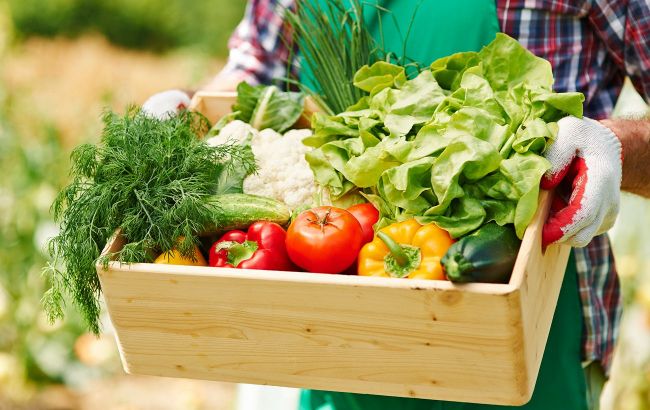This vegetable can lower blood pressure if consumed 4 times week: New study
 Photo: Which vegetable you should definitely include in your diet (freepik.com)
Photo: Which vegetable you should definitely include in your diet (freepik.com)
Consuming one popular vegetable at least four times a week can reduce the risk of heart attacks, strokes, and other serious complications, according to a new study from BMC Medicine.
What you need to know
Approximately one-third of all adults in Ukraine live with a potentially deadly condition known as high blood pressure. In medical terms, this is called hypertension, which means the heart has to work harder to pump blood throughout the body.
This creates additional strain on the heart, as well as on other organs and blood vessels, causing damage. It is also a major risk factor for many serious health conditions and diseases, such as heart disease, kidney disease, strokes, heart failure, and heart attacks.
Poor diet, particularly foods high in salt, is one of the causes of high blood pressure.
Fortunately, some foods have the opposite effect.
What the new study shows
The new study revealed that regular consumption of broccoli can significantly lower blood pressure, particularly among middle-aged and older individuals.
A team of researchers from Edith Cowan University in Australia found that consuming about four servings of cruciferous vegetables daily for two weeks led to a noticeable reduction in systolic blood pressure.
Cruciferous vegetables include broccoli, cauliflower, cabbage, and kale.
These vegetables are rich in compounds called glucosinolates, which break down into biologically active substances, such as sulforaphane, when the vegetables are chopped or chewed.
Previous studies have shown that these compounds may have anti-inflammatory and antioxidant properties, which could improve cardiovascular health. However, the study authors warned that most people do not eat enough cruciferous vegetables.
Increasing vegetable intake is widely recommended for reducing the risk of cardiovascular diseases, and previous observational studies have shown that cruciferous vegetables, such as broccoli, cabbage, and Brussels sprouts, have a stronger link to heart disease compared to other vegetables.
However, although these vegetables are consumed worldwide, cruciferous vegetables usually make up a small portion of overall vegetable intake.
The study involved 18 participants aged 56 to 72 with slightly elevated blood pressure. They were divided into two groups, both receiving a diet rich in cruciferous vegetables.
During the study, participants consumed about 300 grams (four servings) of a mix of broccoli, cabbage, cauliflower, and white cabbage daily for two weeks.
These vegetables were served in the form of two soups – one for lunch and one for dinner.
During the control intervention, participants ate an equivalent amount of root vegetables and squashes, such as potatoes, sweet potatoes, carrots, and pumpkin, also in soup form.
Both groups wore a cuff for measuring blood pressure, which automatically measured blood pressure at regular intervals throughout the day and night.
After two weeks of consuming cruciferous vegetables, participants experienced an average reduction of 24-hour systolic blood pressure by 2.5 mm Hg compared to the control intervention. This effect was even more pronounced during the daytime, with an average reduction of 3.6 mm Hg.
By the way, the nutritionist named super-beneficial teas for the body.
This material is for informational purposes only and should not be used for medical diagnosis or self-treatment. Our goal is to provide readers with accurate information about symptoms, causes, and methods of detecting diseases. RBС-Ukraine is not responsible for any diagnoses that readers may make based on materials from the resource. We do not recommend self-treatment and advise consulting a doctor in case of any health concerns.


